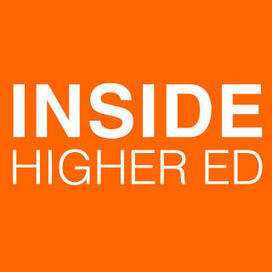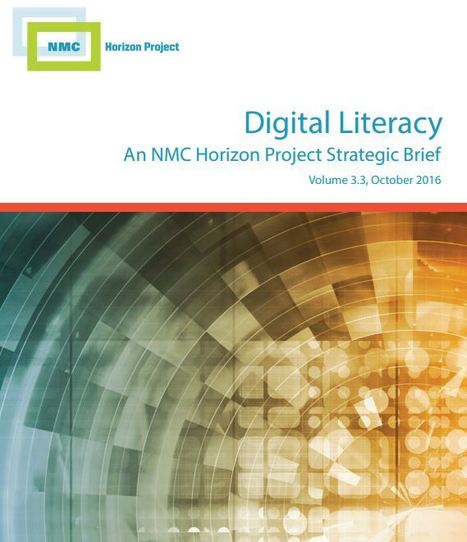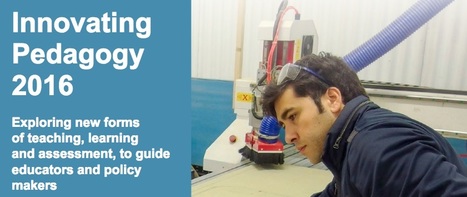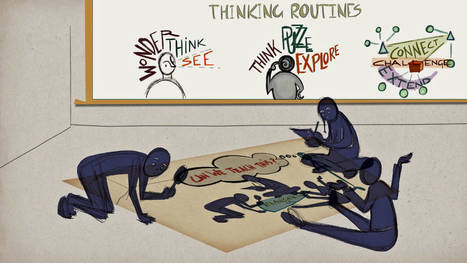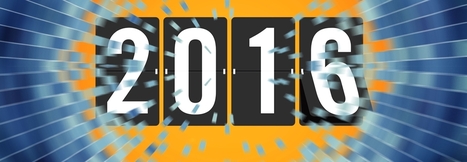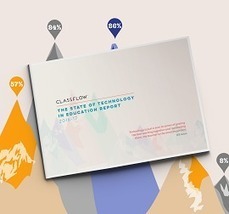A new Project Information Literacy report by the ever-curious researcher, Alison Head, has just been published, the first in a new “practitioner’s series.” Planning and Designing Academic Library Learning Spaces involved interviewing 49 librarians, architects, and consultants involved in 22 library construction projects that were completed between 2011 and 2016. The research probes how these three parties negotiate their values and incorporate them into designs, what kinds of learning are these new and renovated spaces meant to support, and what best practices (and worst practices) might inform libraries embarking on a renovation..
Get Started for FREE
Sign up with Facebook Sign up with X
I don't have a Facebook or a X account
 Your new post is loading... Your new post is loading...
 Your new post is loading... Your new post is loading...

Nataliia Viatkina/Наталія Вяткіна's curator insight,
March 26, 2017 4:20 AM
Professional development for teachers themselves, as personalities, adult people, universally, independently from schooling is very interesting idea, humanistic , and useful for school eventually

Prof. Dr. Kai Reinhardt's curator insight,
March 30, 2017 2:42 AM
Hier gibt es eine gute Sammlung an neuen Wissenstransfer-Formaten...
R's curator insight,
April 6, 2017 1:31 PM
Growth and learning beyond schooling - think outside in-service and conferences/professional workshops.
Nancy Jones's curator insight,
October 7, 2016 8:55 AM
"In our schools, “the emphasis is on what students need to learn, whereas little emphasis—if any—is placed on training students how they should go about learning the content and what skills will promote efficient studying to support robust learning,”

Edumorfosis's curator insight,
December 30, 2016 5:00 PM
En vez de enseñar cosas que ya están accesibles en las redes, las escuelas y universidades deberían practicar la diversidad de formatos de aprendicaje posibles. Ya no es tan importante formar personas intelectuales que sepan de memoria datos declarativos, sino profesionales que tengan capacidades para el aprendizaje autónomo. Hoy día es más importante tener la capacidad de desaprender lo innecesario y reaprender lo que es verdaderamente esencial en el siglo 21.

Laura Yepez's curator insight,
September 12, 2018 12:29 PM
This article provides meaningful information since translanguaging is impacting education. With the correct use of this strategy teachers can creat safety and challenging places for foreing learners. Students feel comfortable when their teachers use their native language so they feel they can carry out any activity; hence, a good learning environment will be stablished.
Lina Kherfan's curator insight,
April 3, 2016 8:19 PM
this article talks about the importance of how children think and learn. the author stresses on the fact that for better learning, students need to have a better structure for learning, hence the title. the author states students often do not have a good structure for thinking. students tend just to memorize things and don't know how to do deep learning. the author states that teachers only teach one part of this structure. which is thinking about thinking. the structre for better thinking is not only thinking about thinking though, there is more to it. the only part of it is to monitoring and directing thinking. " When a student is reading and stops to realize he’s not really understanding the meaning behind the words, that’s monitoring. And most powerfully, directing thinking happens when students can call upon specific thinking strategies to redirect or challenge their own thinking." monitoring is being able to check up on yourself and regulate your own learning and directing is when students can take charge of their learning and direct it to what works for them in their self learning. this article talks about the importance of deeper thinking and learning and then switches to how educators can help with the process. i chose this article because i think that it is an important thing for students in K-12 grades. in my highschool, my graduating year, they had put in place a program called common core, which emphasizes this specific topic in student learning. sadly i was not able to partake in it however i do think that it is important for incoming students learn how to think and learn deeper.
Sara Jaramillo's curator insight,
May 21, 2020 1:27 PM
I agree with what this article says and I consider that education in public schools in Colombia must have into account the theory and the strategies proposed by Ritchhart. It is very important teach students to think by themselves, to take decisions in their learning, to have critical thinking skills, is more useful and meaningful for their learning, that just provide information for them to memorize it. They would not know what to do with this information, and there will be no learning.

Gust MEES's curator insight,
June 14, 2016 3:09 PM
Maker education is currently a major trend in education. But just saying that one is doing Maker Education really doesn't define the teaching practices that an educator is using to facilitate it. Maker education takes on many forms. This post provides an overview of how maker education is being implemented based on the teaching practices…
Learn more / En savoir plus / Mehr erfahren:
http://www.scoop.it/t/21st-century-learning-and-teaching/?tag=pedagogy
http://www.scoop.it/t/21st-century-learning-and-teaching/?tag=Heutagogy
http://www.scoop.it/t/21st-century-learning-and-teaching/?tag=andragogy
https://gustmees.wordpress.com/2015/05/13/andragogy-adult-teaching-how-to-teach-ict/

Shaona Williams's curator insight,
January 4, 2016 5:50 AM
Today, a profound disconnect separates the needs of students and the models of higher education. Mobile connectivity has brought in virtual proximity to far-off places that shrinks physical distance; students can take classes wherever they have access to the internet. |

Nataliia Viatkina/Наталія Вяткіна's curator insight,
March 26, 2017 4:20 AM
Professional development for teachers themselves, as personalities, adult people, universally, independently from schooling is very interesting idea, humanistic , and useful for school eventually

Prof. Dr. Kai Reinhardt's curator insight,
March 30, 2017 2:42 AM
Hier gibt es eine gute Sammlung an neuen Wissenstransfer-Formaten...
R's curator insight,
April 6, 2017 1:31 PM
Growth and learning beyond schooling - think outside in-service and conferences/professional workshops.
Kathy Lynch's curator insight,
August 16, 2016 7:51 AM
Thx Gust Mees! 3 Common mistakes we all make in Learning. My students often get caught at #1, Embrace discomfort, because they do not appreciate the key fact that "Effective Learning feels difficult". Cramming (#2) has never worked to help us retain learning; we must space and layer our practice. Finally, connect the learning to our lives and current knowledge.

AMLTaylor66's curator insight,
August 26, 2016 11:41 AM
We may graduate from school, but we never stop learning. New jobs, new roles, new relationships: all require the acquisition of new knowledge. To stop learning is to stop improving.
1. Embrace discomfort 2. Stop cramming 3. Make connections
Learn more / En savoir plus / Mehr erfahren:
http://www.scoop.it/t/21st-century-learning-and-teaching/?tag=Effective+Learning
|




